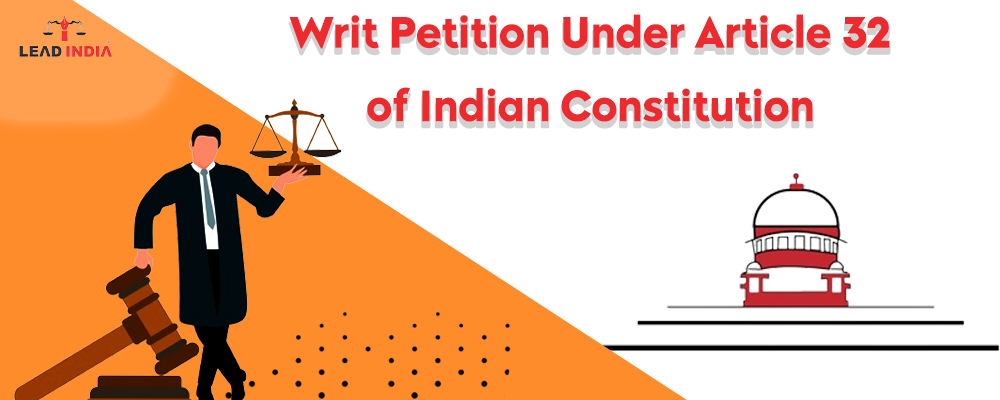Every Indian citizen has the right, under Article 32 of the Indian constitution, to petition the Supreme Court for a constitutional remedy if they have been deprived of their basic rights. In addition to overseeing the administration of justice, the Supreme Court defends fundamental rights and serves as the constitution’s defender. Granting fundamental rights without offering recourse for their enforcement in the event of a violation would be pointless.
Article 32 Writ Petition: About
- The right to petition the Supreme Court through the proper channels for the implementation of the rights granted by this Part is protected, according to Article 32 of the Indian Constitution 1950.
- Article 32 of the Indian Constitution 1950 creates a person’s right to directly petition the Supreme Court to have their fundamental rights upheld and protected.
- It gives the Supreme Court more authority to uphold the Constitution and guarantees that people have a useful way to file complaints when their rights are violated.
Need A Legal Advice
The internet is not a lawyer and neither are you. Talk to a real lawyer about your legal issue

When to File Article 32 Writ Petition?
- A writ petition may be submitted to the Supreme Court in accordance with Article 32 of the Indian Constitution 1950.
- Only in the event that the petitioner can demonstrate that his fundamental rights have been violated would the Supreme Court grant a writ.
To Whom Article 32 Writ Petition may be issued?
The Indian Constitution’s Part III addresses fundamental rights. In and of itself, Article 32 of the Indian Constitution is a basic right. A writ suit under the virtue of Article 32 to the Supreme Court may be filed to address a violation of basic rights. Public law remedies include writs. A defense against abuses by the state is provided by the liberties bestowed to citizens by the fundamental rights specified in Part III of the Constitution. The definition of “State” in Article 12 comprises the following:
- The Indian Parliament and Government, or the Union’s Legislative and Executive branches.
- The legislative and executive branches of government, or government and legislature, of each state.
- Every local government or other authority within Indian territory.
- Every municipal and other authority is under the jurisdiction of the Indian government.
How to File Article 32 Writ Petition?
To file Article 32 Writ Petition, you must follow the following way:
Preparing the Writ Petition
Carefully drafting the petition is necessary to ensure that it covers all relevant legal provisions, facts, as well as arguments. It must state clearly whether the acts of the competent authorities violated any laws or fundamental rights. It is advisable to have legal counsel when drafting an Article 32 Writ Petition.
Affidavit Preparation
Supporting affidavits with all relevant data and paperwork must be prepared. These affidavits are utilized as evidence in this case.
Payment of the Mandatory Court Fees
As required by the regulations, the court fees must be paid. The amount varies according to the value and nature of the case.
Submission of Article 32 Writ Petition
The writ petition, its supporting documentation, and affidavits must be delivered to the Supreme Court. The petitioner is required by the court to ensure that several copies are submitted.
The Indian Constitution’s Article 32 is a potent weapon for upholding and defending fundamental rights. When someone’s rights are violated, it enables them to file a direct appeal with the Supreme Court. The Supreme Court has broadened the application and meaning of Article 32 over time via a number of significant rulings, guaranteeing that it will always be an essential protection for individual liberty.
Constitutional scholars are confident that, in the end, each judge and the Supreme Court will decide, at their own discretion, whether or not to intervene in a case that the High Court may also hear first. To prevent people from losing faith in the legal system as the last resort for rights violations, the courts must provide clarification on the Article 32 issue.
One can talk to a lawyer from Lead India for any kind of legal support. In India, free legal advice online can be obtained at Lead India. Along with receiving free legal advice online, one can also ask questions to the experts online free through Lead India.





 Talk to a Lawyer
Talk to a Lawyer